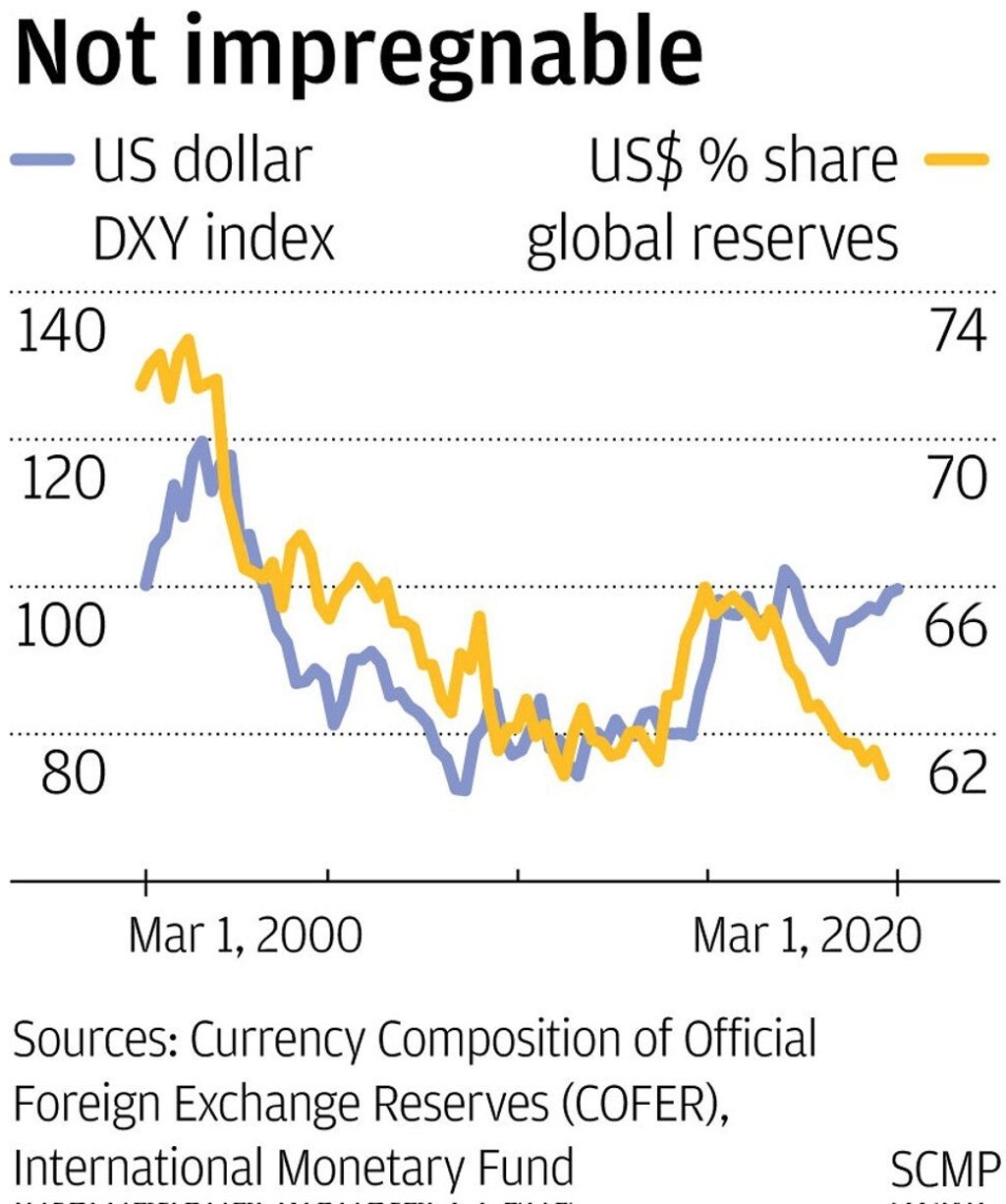Coronavirus boost to the US dollar shows China must do more to win global trust in the renminbi
- To change investor psychology towards the renminbi, Beijing must not only improve monetary policy transparency and open financial markets, but also support international bodies like the IMF and World Bank

If you have ever wondered why some currencies go up and others go down in times of strife, it is not just a simple matter of risk preference. There is plenty for investors to consider. One major ironclad law, though, is that when dangers threaten, investors bail out of “riskier” currencies and pile into safe haven bolt-holes.
Generally the “safer” currencies, like the US dollar, the Swiss franc and the Japanese yen, are on the receiving end of these flight-to-quality flows, while higher-yielding, more volatile currencies suffer as investors hit the panic button.
Meanwhile, the dollar continues to dominate as the world’s most favoured reserve currency with about 60 per cent of global holdings at the end of 2019. That is well above the euro’s 20 per cent market share and allocations of around 5 per cent for the yen and British pound.

